Childhood trauma responses in adults can show up in various ways, and understanding trauma responses is the key to gradually healing from the pain you have been through. This article is going to talk about the five most common trauma responses, how they manifest, and what you can do to deal with them.
I have learned so much about the brain of a trauma survivor over the past year and a half, and more so about how my brain works. Understanding the “why” behind some of my actions and responses to certain things has been super empowering.
I feel like one of the most profound takeaways has been understanding that PTSD is less of a disorder and is more like a brain injury.
Trauma damages the brain and nervous system, but the good news is this damage can be repaired. As we heal the emotional wounds surrounding our trauma, we physically heal the brain, body, and nervous system.
Learning to understand my own trauma responses through my study on trauma has brought me to a place of deeper self-awareness, self-compassion, and self-acceptance. I hope that this information will do the same for you.
Related: 4 Trauma Responses: When Your Defense Mechanism Turns Toxic
Exploring 5 Common Trauma Responses
1. Anxiety
Anxiety is common for trauma survivors because the unhealed past painful experience will cause them to subconsciously perceive threats in their current situation, even when there is no true danger. This causes the nervous system to stay activated which will also result in diminished frontal cortex functioning.
The brain’s frontal lobe is responsible for memory, impulse control, planning, and decision making, just to name a few of its functions. If you suffer from anxiety caused by past traumatic events, I have a great tip for you. Focus on consciously relaxing the muscles of the body.
I know it sounds too simple to be truly effective, but anxiety can’t exist in a relaxed body. You will experience relief within seconds of intentionally relaxing the body. Don’t believe me? Give it a try right now.
Take a deep breath, start at the muscles in the face, and quickly move down the body ending at the feet relaxing each muscle as you move your way down. This should take about ten seconds to do, and you will be feeling notably more calm, relaxed, and clear thinking in that short of a time. This is a powerful tool that everyone has instant access to.
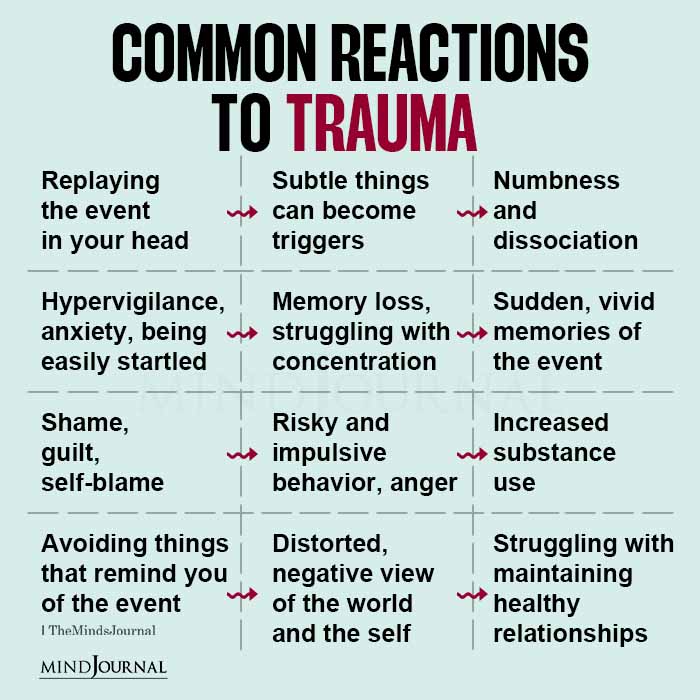
2. Negative Feelings About One’s Self / Self Degradation
(Trigger warning, early childhood sexual abuse)
Having guilt, shame, and feelings of fault is especially common for those of us who have experienced early childhood trauma in the form of abuse.
A young child’s brain is not developed enough to understand the complexities of the abuse, so they can’t comprehend that what has happened to them is not their fault. The only conclusion they can come to is that they are to blame.
I recently heard a story about a three-year-old girl who was sexually abused by her mother’s boyfriend for months and eventually the mother and the boyfriend abandoned her on the side of the road. When officials were interviewing her they asked her why she thought they would hurt her and she said it was because she was bad.
Developmentally a child cannot draw any other conclusion which becomes an ongoing narrative that follows the traumatized child into adulthood.
If you suffer from low self-esteem and experienced any kind of early childhood trauma you need to acknowledge the connection between the two, and you must understand that you are not cursed. You are not a bad person. You are worthy of love and joy, and you absolutely never deserved anything that happened to you, period.
There is never a situation where the victim is at fault, and yet at some point, almost all victims will assume responsibility for what happened to them, even adult victims.
Related: How Trauma Responses Can Hijack Your Life
3. Self-sabotage
I share a lot about my past self-sabotaging behaviour in my book Alchemy of The Phoenix. My self-loathing combined with my desire to numb out drove me to drugs and alcohol for relief from the constant pain I was living in.
The thing is, healthy people do not repeatedly self-sabotage. It is always the result of a life lived in constant pain caused by unhealed trauma.
This isn’t to say a healthy person won’t slip up, overindulge once in a while, or have a lapse in judgment that harms their life, but it won’t be a habit. They will feel the sting of their impaired judgment and avoid making the same choice again.
Another reason that those who are suffering tend to make poor choices is because of the diminished frontal cortex functioning which, as I mentioned already, is responsible for decision making and impulse control.
The diminished capacity of this part of the brain means that the trauma survivor is basically operating on auto-pilot most of the time.
That inner voice that pops in issuing warning signals when a healthy person considers doing something that is not in alignment with their values, morals, and integrity does not exist in the brain of a trauma survivor who has a highly activated nervous system.
This will cause them to do things that they are ashamed of, hold guilt about, and that goes against their core values all of which will continue to affirm the narrative of worthlessness that so many have carried forward from childhood.
4. Dissociation
Dissociation is what happens once a person reaches their threshold of pain and mentally checks out. This can leave the trauma survivor feeling disconnected from their body and from other people.
It can also be the cause of memory loss especially those associated with childhood trauma. Dissociation can cause feelings of being spaced out and may even affect their sense of identity.
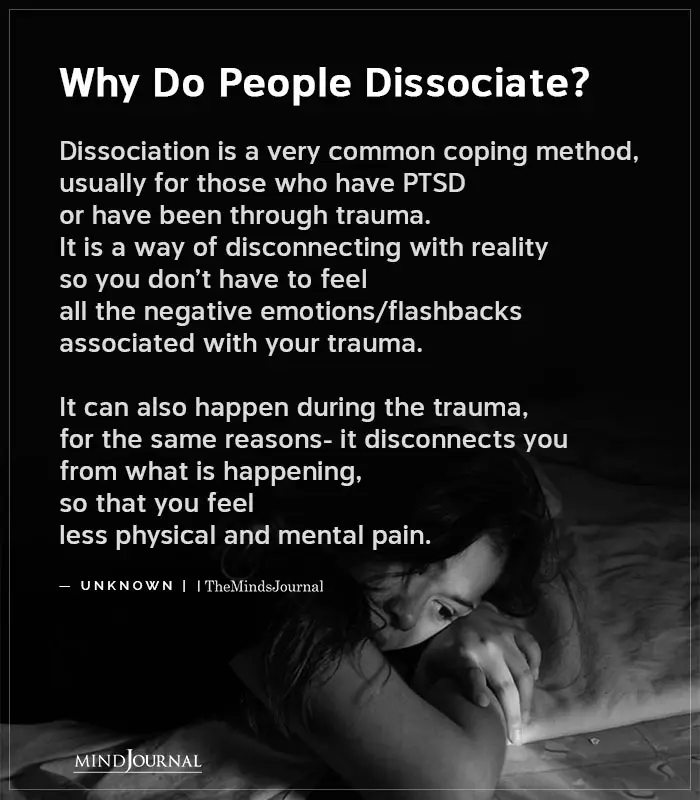
5. Trauma Bonding
Trauma bonds form when the traumatized person chooses a relationship that re-enacts to some degree, the trauma they previously experienced. The bonding happens because of the temporary positive feelings that are created from the “making up” phase in the relationship after the abuse has occurred.
There will be a constant cycle of abuse, followed by a honeymoon phase where the abuser will shower their partner with love, gifts, empty apologies, and intense attention that a trauma survivor will feed off of and depend on because of their need for external validation.
Even though the times of chaos are miserable, they will continue participating in the cycle of abuse because of the addiction to the emotional response following an abusive episode.
Because many who are in these types of abusive relationships are also isolated from friends and family by a controlling partner, they depend even more heavily on the approval from the abuser.
It’s not uncommon for a trauma survivor to initiate abuse for the payoff that they receive during the honeymoon phase. Let me be clear in saying, in no way, shape, or form does this put the fault of the abuse onto the one who is being abused.
These are just a few of the most common responses but this is certainly not a complete list. Trauma is complicated and has so many layers. Even the experts in this field don’t have a total understanding yet as there is still a lot to be uncovered as technology continues to develop.
Related: 10 Anxious Behaviors That Could Actually Be Trauma Responses
If you related to many of these common responses and would like some additional support, please don’t hesitate to reach out. I am here to help you through your healing, and please know you are worthy of peace and a life well-lived.
I also want to add a disclaimer here, and clearly state that I am not a doctor and that I don’t diagnose or treat PTSD. I do hold space, support, offer tools, and help guide my clients through the murky waters of trauma recovery.
I do this by using my own learned experience with trauma recovery and my many coaching and healer certifications as a guide in the work I do with my clients.
If you would like to learn more about working with me, reach out, and let’s chat about how I can best support you along your healing journey.
You can schedule your free discovery call here.
I hope that this week’s blog has helped to serve and support you.
As always, I am sending so much love to each and every one of you.
“If you would like some support, Kelly Bramblett offers 1:1 trauma support and shadow work coaching. Set up your free discovery call with her here to learn more. https://kellybramblett.as.me/?appointmentType=32016990“
Written By Kelly Bramblett Originally Appeared On Kelly Bramblett
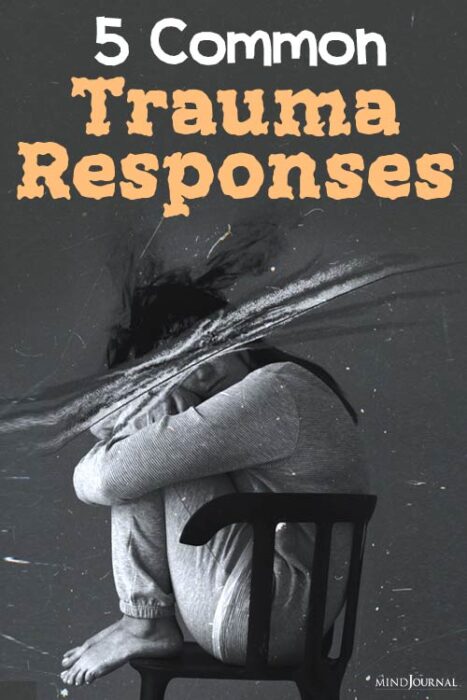
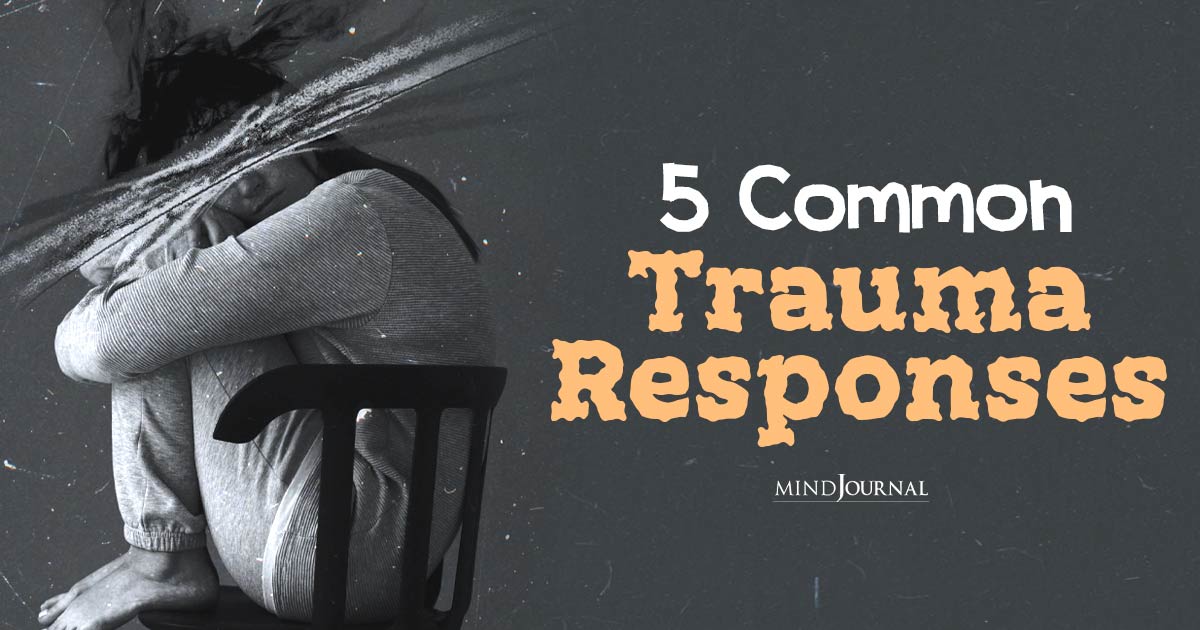





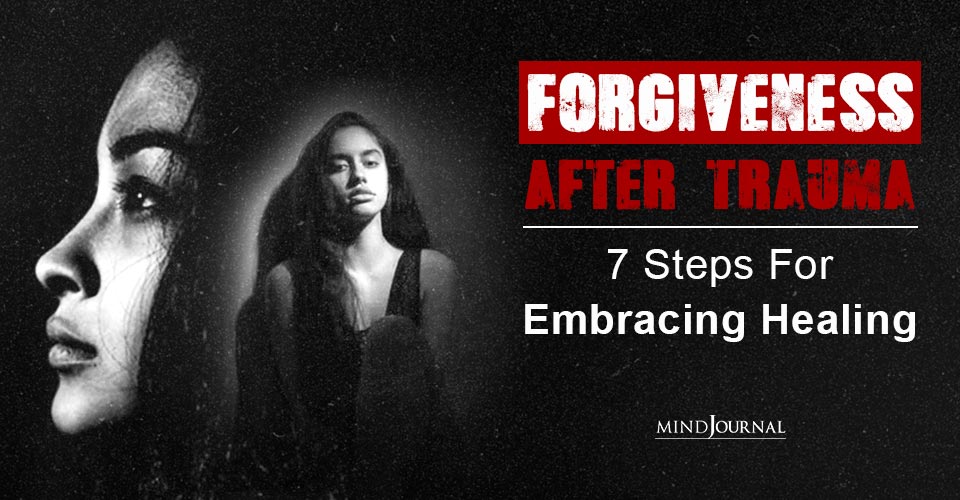

Leave a Reply
You must be logged in to post a comment.